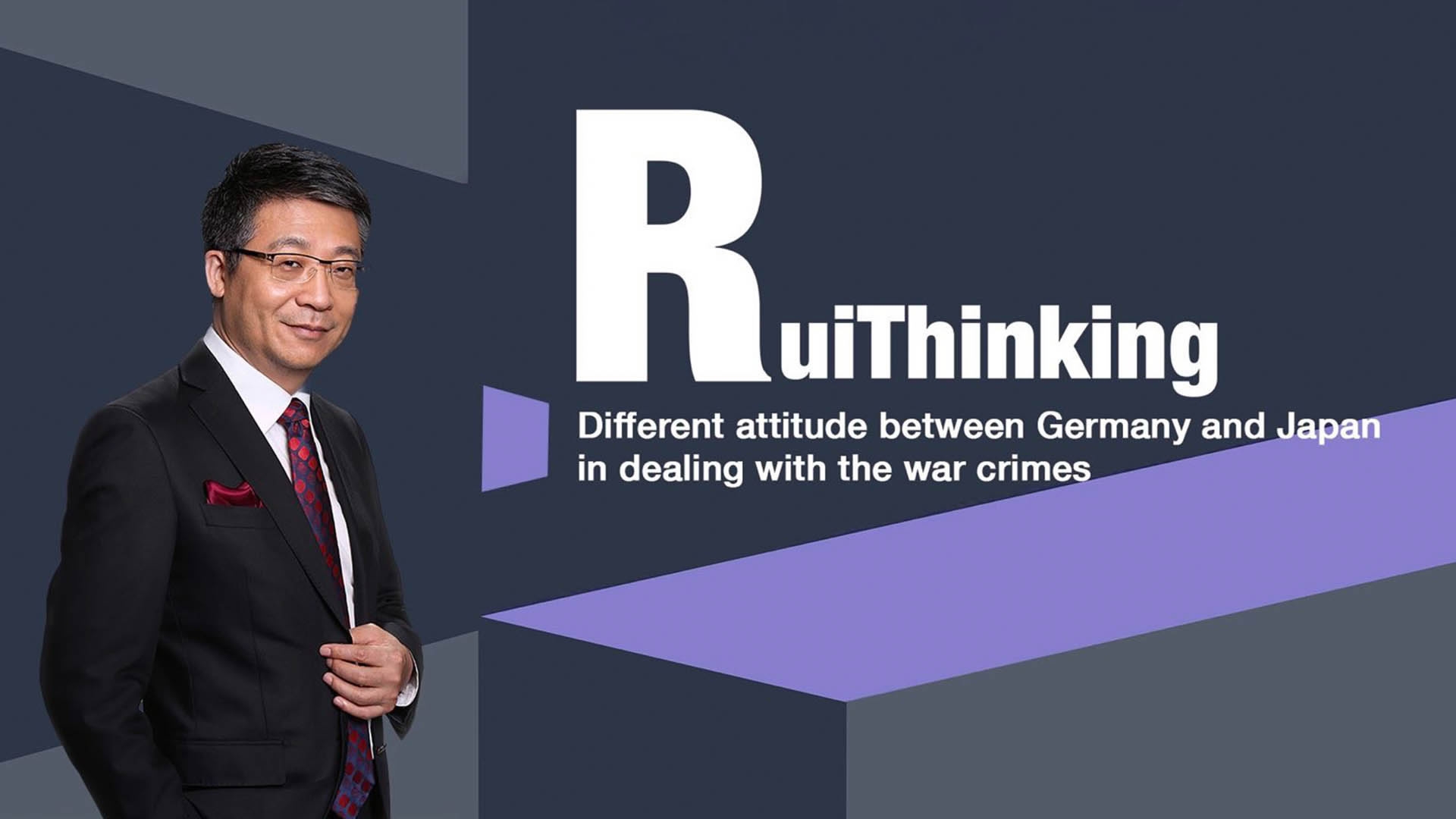
Opinions
14:13, 16-Dec-2017
RuiThinking: The difference between Germany and Japan in dealing with war crimes
By CGTN's Yang Rui

Surprisingly, President Xi Jinping, who attended the fourth National Memorial Day commemorating the 80th anniversary of the Nanjing Massacre in Nanjing, did not openly say anything about revenge or hate, despite Japan’s strong reluctance and defiance against apologizing.
Instead, Mr Yu Zhengsheng, chairman of the National Committee of the Chinese People's Political Consultative Conference (CPPCC), reiterated the importance of peacemaking in his keynote presentation. Can the two war rivals normalize ties when regional integration in Northeast Asia faces great uncertainty due to unresolved historical issues?
So long as Japan remains Japan and not Germany in terms of its apology, there won't be any serious rapprochement despite all the political rhetoric. Japan will not integrate into Asia so long as it refuses to face up to the bleeding wounds of the victims. China should of course move forward instead of being enslaved by memories and victimhood. A real superpower should not be mired in the past.
Germany has assumed regional leadership after decades of genuine apologies and compensations. This is what Europeans said to me. Japan still uses the word "entry" instead of "invasion" to characterize their war behavior. They call the invasion "an unfortunate incident" instead of aggression.
In the newly released movie, "The Darkest Hour," Winston Churchill searches for a word to call Hitler. He ends up using many dirty words to unleash his hatred for the butcher. His dislike for Hitler left an indelible mark on his journey to leadership. Churchill is great. Japan humiliates Koreans by refusing to address the "comfort women" issue. Our memories about Japan’s past are constantly rekindled by their own defiance and stupidity. Such as their politicians’ regular tribute at the Yasukuni Shrine. German politicians never visit a cemetery that enshrines Nazi war criminals. This is the big difference.

SITEMAP
Copyright © 2018 CGTN. Beijing ICP prepared NO.16065310-3
Copyright © 2018 CGTN. Beijing ICP prepared NO.16065310-3